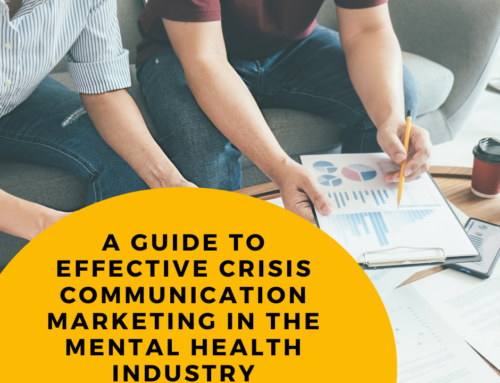In today’s data-centric world, analytics plays an increasingly pivotal role in crafting effective marketing strategies in the healthcare industry. Within the sphere of mental health, data-driven methodologies hold immense potential. Mental health service providers seeking to harness the power of data analytics to drive patient acquisition, measure campaign effectiveness, and optimize ROI should.
We delve into the crucial role of data analytics for mental health marketing, exploring key concepts such as closed-loop reporting and data-driven marketing techniques, along with various attribution models.
Harnessing the Power of Data in Mental Health Marketing

Harnessing data to drive marketing initiatives is no longer an option; it’s necessary for mental health service providers who aim to broaden their patient outreach. The landscape of mental health is vast and diverse, with patients at different stages of their journey requiring personalized approaches.
By capitalizing on data-driven marketing, organizations can gain invaluable insights into their campaign’s real-world performance, making it possible to tailor their efforts to resonate with their target demographic. Data analytics provides a holistic view of your marketing impact, from patient behavior patterns to engagement metrics. Ultimately, the power of data is transformative, paving the way for heightened patient acquisition, superior campaign performance, and measurable ROI.
Utilizing Closed-Loop Reporting for Robust Analysis
Adopting closed-loop reporting (CLR) paves the way for optimized performance in healthcare marketing. CLR systems establish a link between revenue, patient data, and marketing activities, providing a clear view of each marketing campaign’s impact on the patient acquisition process.
However, the application of CLR in the healthcare sector comes with its unique set of challenges. These can include but are not limited to the necessity of manual tracking for precise acquisition capture, over-generalized direct traffic attribution, limited data accessibility due to cookieless browsers and privacy restrictions, and the data limitations imposed by HIPAA regulations. These barriers can be circumvented by crafting an all-encompassing analytics strategy that utilizes cross-platform tracking pixels and campaign tracking links.
Utilizing closed-loop reporting requires a robust marketing campaign tracking system comprised of data analytics tracking for your website, call tracking numbers for all digital and traditional advertising mediums, internal alpha-numeric marketing campaign identifiers linked to each marketing campaign’s tracking number, and a patient attribution model within your EMR/EHR and CRM systems that are appropriately integrated with each other and with your call systems and online portals.
Data-Driven Approach to Mental Health Services Marketing

Evaluating the effectiveness of healthcare marketing can be complex. The first step is establishing a unified data hub that combines all marketing systems, activities, and data, eliminating unnecessary data silos and redundant operations. You’ll need to work with a website development team to ensure your internal marketing reporting is integrated with your digital marketing channels.
To successfully execute a mental health marketing campaign, you must foster enhanced communication among your marketing, revenue, and operation departments. Outline distinct KPIs for each team, allowing you to pinpoint areas that require improvement. Benchmarking against industry standards can also help gauge your organization’s relative performance.
Choosing the suitable attribution model for each report is vital for any mental health service provider. The most frequently used models include:
- First-touch: This model attributes the conversion entirely to the initial touchpoint that the patient interacted with. It’s beneficial when evaluating the effectiveness of your awareness campaigns, making it an excellent tool for gauging the power of your first impression on prospective patients.
- Last-touch: The final touchpoint the patient engaged with is credited with the conversion in this model. This allows you to accurately represent the last interaction that led to a conversion, helping you understand the strength of your closing strategies.
- Linear: This model equally distributes credit to every involved touchpoint, often employed to plot a patient acquisition journey. It acknowledges that every touchpoint has a role in the patient’s journey, providing a broad overview of your marketing ecosystem.
- U-Shaped/Position Based: This multi-touch attribution model assigns maximum weightage to the first and last marketing touchpoints, with the intermediate ones receiving less weight. It reflects the importance of both first impressions and concluding interactions, recognizing the significant role each plays in influencing a patient’s decision to seek care.
Harnessing the power of data analytics in mental health marketing can elevate your organization’s outreach and performance, making understanding and implementing these principles in your marketing strategy essential.
Work With a Digital Marketing Agency Experienced in Mental Health Marketing and Analytics
When you work with Lead to Recovery, a leading mental health digital marketing agency, you’ll gain a more profound understanding of your marketing campaign performance and have actionable insights that drive growth. Call us at 855-952-5675 or book a discovery call with our team to start getting more qualified patients scheduled with you today.




